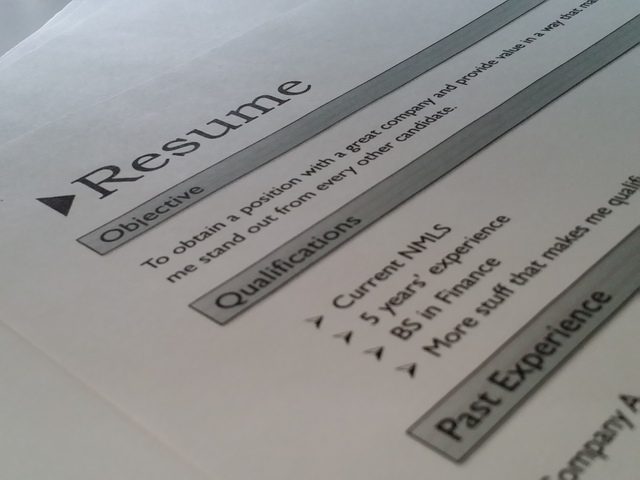Podcast: Play in new window | Download
Getting your foot in the door with a private investigation agency can be an uphill battle and I hope that by the end of this article you will have a few different paths to follow. This article is also an answer to Dan G.’s message to me through Facebook. I appreciate the question Dan.
Here is Dan’s question.
Hi Andrew,
Huge fan of the podcast, site and all– its been a major resource and something that really helped me decide that PI work is definitely a career path I’d like to follow. That being said, I had a question about finding a mentor.
Basically, I’m looking for information on how to get involved in PI work in New England, and I seem to be having no luck. I have a bachelors degree in criminal justice and I study the craft independently, but I have no real, direct investigative experience. I apply for work and get shut down pretty quickly. Usually when I get rejected, I reach out to the employers with a cordial letter requesting any advice they could offer, and I get no response. Any idea on how a guy can find a mentor to help with experience, direction, anything like that? I’d be happy to intern for free if that’s what it takes, but I can’t even seem to get anyone to pay attention for long enough to make the pitch. Any ideas?
Thanks,
Dan G.
Dan, after reading your question I think it is great that you follow up with each company you apply to as that is a good practice to have. So keep doing that.
I have a ton of practical tips that I will discuss in this article but I will tell you what the fastest way is to become a private investigator in my opinion at the beginning of this post so you don’t have to wait till the end. This isn’t anything groundbreaking but many people don’t know about this or have forgotten.
The Fastest Way to Become a Private Investigator
I believe that the quickest way to become a private investigator is to get hired on with an insurance investigation company. Insurance investigation companies have minimum requirements but those requirements vary throughout the different companies. Some companies have very high standards for experience while others are more willing to hire someone with less experience because they have the infrastructure to train investigators with little to no experience.
Another reason it is easier to get hired with an insurance investigation company is because the owner or CEO is further away from the investigators because the company is typically larger (50 to 200 employees). Employees come and go and they need to keep their territories (states) staffed with investigators to work files. The owner or CEO is not likely hovering over every decision made within the company when it comes to hiring. With that being said there may be a little more wiggle room when it comes to hiring investigators with limited experience.

Use a Cover Letter to Expand on your Background and Experience
A resume typically doesn’t provide enough information about you, your experience or what you are willing to do to get hired on with a company. A resume shows the companies you worked for, the time you were there and fancy words to make what you did there seem important.
If the experience or duties doesn’t translate with the company you are applying for you might get looked over very quickly.
Writing a cover letter can expand on the areas of what you can offer the company and what you would be willing to do to get hired on with the company.

Call Them
If you aren’t getting a call about your resume then follow up with them to see what the status of your application is. Find out why you didn’t make the cut. If you don’t know why you are not making the cut then ask. This will allow you to determine exactly what they were looking for if it wasn’t already clear.
Find Companies Willing to Train
More and more companies are not looking to train investigators as it cost the company a lot of money to do it . Over the years I have not come across many job postings for companies willing to invest the time and resources. But I still believe there is a possibility you will come across a company that may be willing to do so.
I always suggest that people try to get on with companies that are willing to train with pay or without. Even if you can learn without getting paid you may have the chance to eventually get hired on with the company or at the very least you are gaining valuable experience.

Have Your Own Equipment
To even have a chance at getting hired for a company these days you need to have your own equipment. And when I say this I have an insurance investigation company in mind. You will absolutely need to have your own equipment if you apply for an insurance investigation company.
I will create a list of standard equipment needed with different price points for different budgets. Once you have the equipment it will last for several years and some of it will last for decades. Regardless of how long it lasts, it will allow for you to make a living as a private investigator.

Start Your Own Business
Many investigators get their start by simply starting their own business. Some states allow you to become a private investigator after taking a test that would show that you know the laws associated with being a private investigator. Washington state is one of those states.
Some states don’t require anything more than a business license (though this number is dwindling).
I know many private investigators that were self-taught through reading, asking questions and working hard to learn the craft.
With that being said. If you are desperate to get a license then find out which states don’t require a professional license and just a business license to start a private investigation business. I would highly recommend that you do your due diligence in learning the laws related to being a private investigator and possibly taking some online or college courses associated to becoming a private investigator.
Don’t Stop Trying
The person who stops trying to be a private investigator will never have a chance to become one. The moment you quit trying to get hired is the moment when the pursuit ends.
I Wrote About this Before
I wrote about how to gain experience to become a private investigator several years ago and I believe this that article still holds true to this day. It discusses several things that will build experience and allow you to show any prospective company that you are serious about the profession.
Final Thoughts
I know it is difficult to get into this industry as an employee. If it was easy then everyone would be doing it. Some people fall into this industry by accident while others deliberately want to get into it. It seems as though the people who deliberately want to get in the industry have the most difficulty doing so.
Recent Posts
Hawaii is probably one of the most interesting states to work as a private investigator if you are not used to the culture or a native of the state. And if you are not a local, that is something...
How to become a private investigator in Georgia

